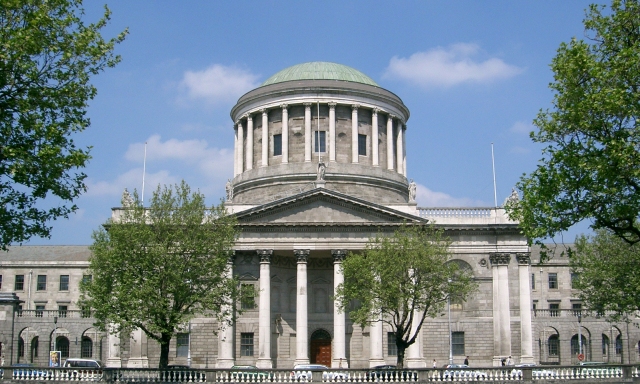An Taisce slams State’s plan to limit window to bring Judicial Review cases

February 9th, 2018
The State’s plan to halve the period to initiate a Judicial Review for critical infrastructure projects from eight to four weeks goes against citizens’ rights to justice, An Taisce has warned.
Currently, there is an eight-week window to make an application to the court for leave to Judicially Review planning decisions for strategic infrastructure developments.
Within this period, an individual or organisation making an application must get a copy of the decision, determine the exact legal issues at play, and also request information which may be required to inform the decision to challenge.
On Tuesday, however, The Irish Times reported that the Cabinet recently discussed and approved measures that would reduce this period from eight weeks to four weeks for major building projects.
Many major projects go directly to An Bord Pleanála as outlined in the Strategic Infrastructure Act, with legislation set to be discussed in the Seanad next week seeking to include data centers under the Act.

The High Court Photo: Gary Barber
Aarhus Convention
According to An Taisce, the State’s proposal to limit this window to just four weeks runs contrary to the access to justice principle under the Aarhus Convention.
Ratified by Ireland in 2012, the convention is an international agreement setting a number of environmental rights of the public, including access to justice at a cost which isn’t prohibitive and which is “fair, equitable, [and] timely”.
An Taisce has taken five Judicial Reviews in the last five years all based on breach of infringements of various planning rule or EU Directives. It won three of those cases, with the two other cases currently before the courts.
In a statement, An Taisce said that it will “fight to continue to be able to take well-reasoned Judicial Reviews” in a reasonable timeframe.
Tightening the Rules
It is also believed that the State intends to tighten the rules for eligibility to take judicial review proceedings, with a senior Government source telling The Irish Times this week that would-be litigants would have to prove that the development impacts on them directly to entitle them to take such cases.
According to An Taisce, this will ensure that the “burden” of taking on such cases will “fall even more to environmental NGOs”.
It is also expected that, under the new measures, NGOs would have to prove that they have an environmental focus, are not-for-profit and have been active for at least three years.
[x_author title=”About the Author”]







